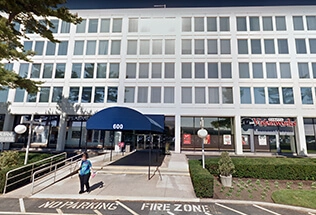There is no comprehensive statistic on how many wrongful deaths occur each year, but nearly 170,000 unintentional deaths do happen. The top three most common accidental deaths are:
- Slips and Falls (36,338 cases)
- Motor Vehicle Accidents (40,231 cases)
- Unintentional Poisoning (64,795 cases)
No matter the cause, losing a loved one is a difficult time for anybody.
But if a loved one has died from unforeseen circumstances, then you might be wondering what qualifies as wrongful death.
This article will address most of the questions you might have about wrongful death and hopefully set you on a path through the legal system that minimizes your confusion and hurt.
What Is Wrongful Death?
When a fatal incident occurs, most of that person’s family and loved ones want to search for an answer to why it happened. While many accidents result from unexpected timing and unintentional actions, some others are caused by negligence or intentional acts.
A wrongful death claim is a specific type of lawsuit when someone dies due to another person’s negligence or intentional act. Also referred to as torts,” these acts are committed by a person or business that causes harm to another person.
There are two routes in which wrongful death torts may follow: Negligence or intentional.
Negligent Wrongful Deaths
Negligence is an essential key in most wrongful death incidents. For example, a doctor prescribing the wrong amount of medication is considered negligence. A truck driver who doesn’t check their blind spot before switching lanes is negligence. A frequently-used machine that is long overdue for a quality check is negligence.
Some more examples of negligent death include:
- Vehicle Accidents (Car, truck, or motorcycle)
- Pedestrian and Bicycle Accidents
- Premise Liability Accidents (Slip and fall injuries or being struck by an object)
- Product Liability (The use of a defective or dangerous product)
- Medical Malpractice (Staff’s errors and mistakes)
- Accidental Poisoning or Overdoses (Often caused by medication errors)
- Recreation Accidents (Boating and drowning)
- Construction Accidents
- Aviation Accidents
Intentional Wrongful Deaths
Some common types of intentional death torts include:
- Fraud
- Misrepresentation
- Defamation
- False Imprisonment
- Assault and Battery
- Suicide (Intentional infliction of emotional distress)
In exceptional instances, a family could file a wrongful death claim if they believe a loved one has committed suicide caused by intentional infliction of emotional distress by another person. One of the most recent and well-known cases in the United States would be Commonwealth v. Michelle Carter. Unfortunately, proving this is one of the most challenging topics to try, and only a few states even allow such claims.
What Qualifies As a Wrongful Death Claim?
If you think someone close to you died due to another person at fault, then you can file a wrongful death claim.
As the Plaintiff, you will have to prove that this person’s death was caused by the other party’s negligence, recklessness, or deliberation. Additionally, in New York, you’ll have to establish that you’ve suffered a pecuniary or financial loss as a result of the wrongful death. You can also collect for the amount of pain and suffering your loved one endured before their passing.
It’s best to have an attorney for wrongful death in your corner during this process. They will move forward with your claim in proving that wrongful death occurred, which can be a complex and challenging process.
How Do You Prove Wrongful Death?
The ultimate goal of a wrongful death case is to prove that the other party was negligent or intended for the death to happen.
For your lawyer to prove negligence or intentional tort, certain elements need to be confirmed and addressed:
- Duty of Care: Your wrongful death attorney (represented as the Plaintiff) must prove that the other person (the Defendant) owed a duty of care to the deceased person. A good example is a car accident: A driver has the legal and moral obligation to abide by specific laws when sharing the road.
- Breach of Duty of Care: The Plaintiff should prove that the Defendant has breached this duty of care. In this instance, the driver’s speeding and irresponsible lane changes would put him at fault for the failure of following driving laws, which resulted in another person’s death.
- Causation: The Plaintiff also has to prove that this particular action directly caused the decedent’s death. In a car accident, reasons like mechanical failure would not put the Defendant at fault.
- Damages: The death of this person likely resulted in what’s referred to as multiple damages,” which includes hospitalization, medical expenses, funeral and burial costs, and loss of income/pecuniary loss. Unfortunately, in New York, you cannot collect for the emotional pain and suffering of the family.
How Long Can You Sue for Wrongful Death?
Every state has its statute of limitations, a prescriptive period, to set the maximum time after an event within which the Plaintiff may initiate legal proceedings.
New York has a two-year statute for wrongful death, which means you have two years from the person’s untimely death to file a claim (with some exceptions under the law, i.e., municipal or government agencies, etc.).
Who Can File Wrongful Death Suits?
New York State allows the following individuals to file a wrongful death lawsuit:
- The deceased’s spouse
- The deceased’s children
- The deceased’s parents
- A personal representative for the deceased’s estate
In instances where the deceased was a single adult without children, distant family members like grandparents, aunts, uncles, or cousins may file a lawsuit in some cases.
Conclusion
Coping with the death of a loved one is not easy for anybody. It can take months until you begin to feel better from the emotional distraught that has occurred.
But there is a small light at the end of the tunnel: Depending on the situation, you may be able to file a wrongful death claim, which can give the whole family peace of mind, as well as a settlement that could help bring financial relief.
When you begin searching for a lawyer, always narrow your selection down to experienced attorneys for wrongful death who have expertise in personal injury law. Your lawyer not only serves as a source of support so you can focus on mourning, but they will also handle any litigation so you can get fairly compensated.
















